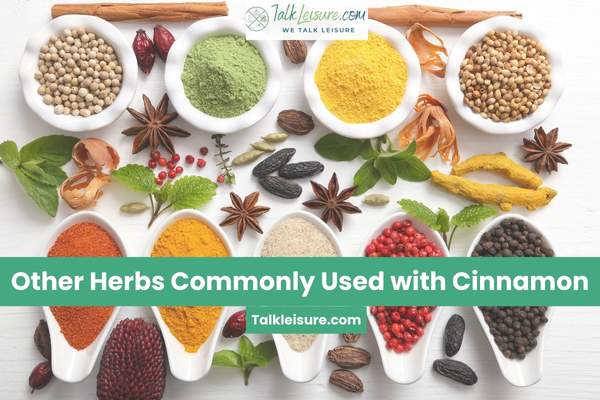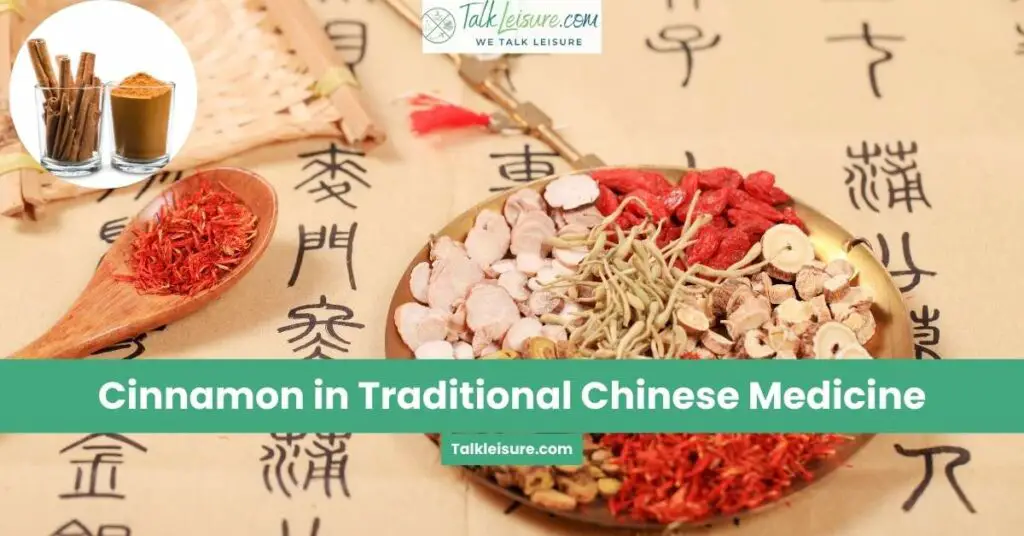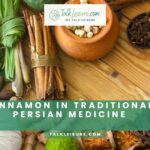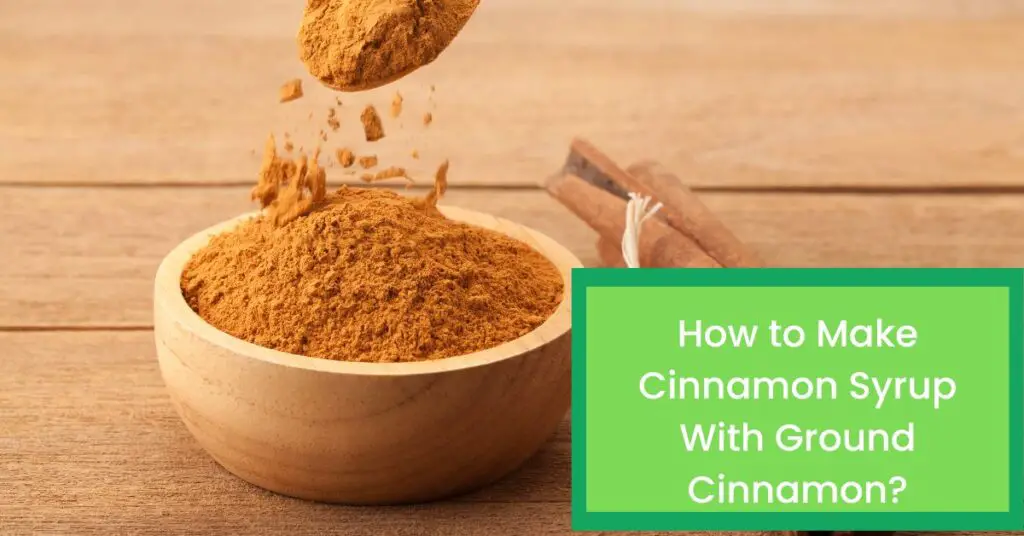Since ancient times, Traditional Chinese Medicine (TCM) has made extensive use of cinnamon, a famous spice recognized for its warm, sweet flavor.
Health is frequently viewed in TCM as a delicate balance between Yin and Yang energy.
Yang embodies warmth and activity, while Yin represents the calm and passive qualities.
In traditional Chinese medicine, cinnamon is used to promote overall well-being by harmonizing these energies with its special qualities.
Let’s examine cinnamon’s long history and all-encompassing health benefits in the light of TCM’s Yin and Yang balance.
Historical Background and Usage in TCM
Cinnamon has been a prominent herb in Traditional Chinese Medicine (TCM) for centuries. Its usage dates back to ancient Chinese texts, such as the Huangdi Neijing (Yellow Emperor’s Inner Canon), which was written over 2,000 years ago.
In TCM, cinnamon is referred to as “gui zhi” and is classified as a warm and sweet herb.
According to TCM principles, cinnamon is believed to have properties that can invigorate blood circulation, warm the body, and dispel coldness.
It is commonly used to address health issues related to the “qi” (energy) and “blood” in the body.
In TCM, it is said that when the body experiences a deficiency of yang energy, which is associated with coldness, cinnamon can help restore balance by promoting warmth and circulation.
What Are The Traditional Beliefs Surrounding Yin and Yang Balance?
TCM is based on the concept of balancing the opposing forces of yin and yang in the body.
“Yin” represents coolness, darkness, and a passive nature, while “Yang” represents warmth, light, and an active nature.
According to TCM principles, an imbalance between yin and yang can lead to health issues.
Cinnamon is believed to help restore the balance between yin and yang.
Its warming properties are thought to be beneficial in addressing conditions such as cold limbs, menstrual disorders, and digestive problems.
By helping to circulate the body’s energy and warm up areas affected by coldness, cinnamon is believed to aid in rebalancing yin and yang.
In TCM, the usage of cinnamon is often seen in combination with other herbs to create a synergistic effect.
Its ability to warm the body and invigorate circulation makes it a valuable ingredient in TCM formulations.
However, it is important to consult with a qualified TCM practitioner before using cinnamon or any other herbs for medicinal purposes.
What Are the Cinnamon Varieties Used in TCM?

There are primarily two types of cinnamon used in Traditional Chinese Medicine (TCM): Cassia cinnamon (Cinnamomum cassia) and Ceylon cinnamon (Cinnamomum verum).
Cassia cinnamon, also known as Chinese cinnamon, is the most commonly used variety in TCM. It has a strong and spicy flavor.
Ceylon cinnamon, often referred to as “true” cinnamon, is considered to be of higher quality and has a milder and sweeter taste.
Comparison of Cassia and Ceylon Cinnamon
Here’s a comparison between Cassia and Ceylon cinnamon in terms of their properties and usage in TCM.
| Property | Cassia Cinnamon | Ceylon Cinnamon |
| Taste | Strong and Spicy | Milder and Sweeter |
| Reputation | Considered to have stronger medicinal properties | Considered to be of higher quality |
| Usage in TCM | widely used for its warming properties and ability to invigorate blood circulation | used for its warming properties but milder in action compared to Cassia Cinnamon |
How Does Cinnamon Affect Yin and Yang Energetics?
In Traditional Chinese Medicine (TCM), cinnamon is believed to have a warming nature that can help balance the Yin and Yang energies within the body.
Cinnamon is considered to have a hot energetic property, which makes it useful for conditions associated with coldness and deficiency.
It is often used to warm the body, increase circulation, and invigorate the Qi (vital energy).
The warming nature of cinnamon can be attributed to its ability to stimulate blood flow and enhance metabolism.
It is thought to have a Yang-promoting effect, helping to counteract conditions caused by excess Yin, such as cold hands and feet, poor digestion, and low vitality.
What Are the Benefits of Restoring Balance?
By balancing Yin and Yang energies, cinnamon can bring about numerous benefits to the body and mind.
Some of the potential benefits include:
- Improved circulation and blood flow
- Increased energy and vitality
- Support for the immune system
- Regulation of menstrual cycles and hormonal balance
- Relief from symptoms of coldness, such as chills and cold extremities
It is important to note that while cinnamon can be beneficial in restoring Yin and Yang balance, it should be used in moderation and under the guidance of a qualified TCM practitioner.
Every individual’s condition is unique, and an experienced practitioner can provide personalized recommendations based on their assessment.
What Are the Cinnamon’s Therapeutic Effects in TCM?
In Traditional Chinese Medicine (TCM), cinnamon is highly regarded for its therapeutic effects in treating various ailments.
Some of the common conditions where cinnamon is used include,
- Cold hands and feet
- Poor digestion
- Low energy and vitality
- Menstrual irregularities
- Weakened immune system
- Chills and cold extremities
Research Studies and Evidence
Several research studies have been conducted to explore the therapeutic properties of cinnamon in TCM.
Here is a summary of some key findings,
- Complementary Medicine Found that cinnamon can improve blood circulation and enhance digestive function in individuals with cold-type gastrointestinal disorders.
- A systematic review published in the Journal of Medicinal Food Highlighted the potential of cinnamon in regulating hormonal balance and reducing symptoms of menstrual irregularities.
- A study published in the Journal of Ethnopharmacology Suggested that cinnamon has immunomodulatory effects, supporting the immune system and protecting against infections.
These findings provide scientific evidence for the therapeutic efficacy of cinnamon in TCM and validate its traditional use in restoring Yin and Yang balance.
What Are the Other Herbs Commonly Used with Cinnamon?

In Traditional Chinese Medicine (TCM), cinnamon is often combined with other herbs to enhance its therapeutic effects.
Some common herbs that are frequently used alongside cinnamon include:
- Ginger: Known for its warming properties, ginger can further stimulate blood circulation and alleviate symptoms of coldness.
- Licorice: Helps to harmonize the formula and enhance the sweetness of cinnamon, while also supporting digestion and immune function.
- Dang Gui (Chinese Angelica): Often used in combination with cinnamon to regulate menstrual irregularities and nourish the blood.
- Bai Shao (White Peony Root): Works synergistically with cinnamon to tonify and invigorate the blood, reducing symptoms associated with Yin deficiency.
What Are the Signs of Yin or Yang Excess or Deficiency?
In Traditional Chinese Medicine, an imbalance of Yin and Yang energies can manifest in various symptoms.
Here are some signs that may indicate a Yin or Yang excess or deficiency.
Yin Excess
Fatigue, coldness, pale complexion, water retention, slow metabolism, and excessive menstrual bleeding.
Yang Excess
Restlessness, irritability, hypertension, rapid metabolism, red face, and excessive sweating.
Yin Deficiency
Dry skin, hot flashes, night sweats, insomnia, rapid heartbeat, and low libido.
Yang Deficiency
Cold extremities, lethargy, low metabolism, weak digestion, cold intolerance, and low back pain.
holistic approach to promoting overall well-being and harmonizing the body.
What Are the Potential Side Effects and Precautions?
Possible Adverse Reactions
In some cases, the use of cinnamon in Traditional Chinese Medicine formulas may cause certain adverse reactions.
These can include allergic reactions, such as skin rashes or itching, as well as gastrointestinal discomfort like nausea or diarrhea.
It is important to monitor your body’s response to cinnamon and discontinue use if any adverse reactions occur.
Contraindications and Safety Precautions
While cinnamon is generally considered safe for most individuals, there are certain precautions to be aware of.
It is not recommended for people with bleeding disorders or those taking medications that increase the risk of bleeding, as cinnamon may have anticoagulant properties.
Additionally, individuals with liver or kidney disease should exercise caution and consult a healthcare professional before using cinnamon.
It is important to note that cinnamon should be used in moderation, as excessive consumption may lead to potential side effects such as liver toxicity or interactions with certain medications.
As with any herbal remedy, it is advisable to consult with a qualified healthcare professional before incorporating cinnamon into your treatment plan, especially if you have any underlying medical conditions or are taking prescription medications.
Conclusion
Cinnamon is a widely used herb in Traditional Chinese Medicine (TCM) for its warming properties and ability to balance Yin and Yang energies in the body.
It is often prescribed in TCM formulas to treat conditions related to colds, such as digestive issues, menstrual cramps, and joint pain.
However, it is important to be aware of the potential side effects and take necessary precautions when using cinnamon.
Some individuals may experience allergic reactions or gastrointestinal discomfort when consuming cinnamon.
It is advised to discontinue use if any adverse reactions occur.
There are also certain contraindications and safety precautions to consider.
Cinnamon may have anticoagulant properties, so it should be avoided by individuals with bleeding disorders or those taking medications that increase the risk of bleeding.
People with liver or kidney disease should consult a healthcare professional before using cinnamon.
It is crucial to use cinnamon in moderation as excessive consumption can lead to potential side effects, including liver toxicity or interactions with certain medications.
It is recommended to consult with a qualified healthcare professional before incorporating cinnamon into your treatment plan, especially if you have underlying medical conditions or are taking prescription medications.
FAQs
01.Is Cinnamon Warming or Cooling?
Cinnamon is considered a warming herb in Traditional Chinese Medicine (TCM).
It is believed to have a warming energy that can help balance the Yin and Yang energies within the body.
In TCM, the concept of Yin and Yang refers to the opposite and complementary forces that exist in all aspects of life, including the human body.
02.Does Cinnamon Balance Hormones?
While research on this specific topic is limited, there is evidence to suggest that cinnamon may indeed have hormonal balancing properties.
One study published in the Journal of Clinical Endocrinology and Metabolism found that cinnamon extract improved menstrual regularity and hormone levels in women with polycystic ovary syndrome (PCOS).
PCOS is a hormonal disorder that affects reproductive-age women and is characterized by irregular periods, high levels of androgens (male hormones), and cysts on the ovaries.
The study showed that cinnamon supplementation led to improved insulin sensitivity and decreased insulin resistance in these women, which may have contributed to the hormonal improvements observed.
Best Wishes!












